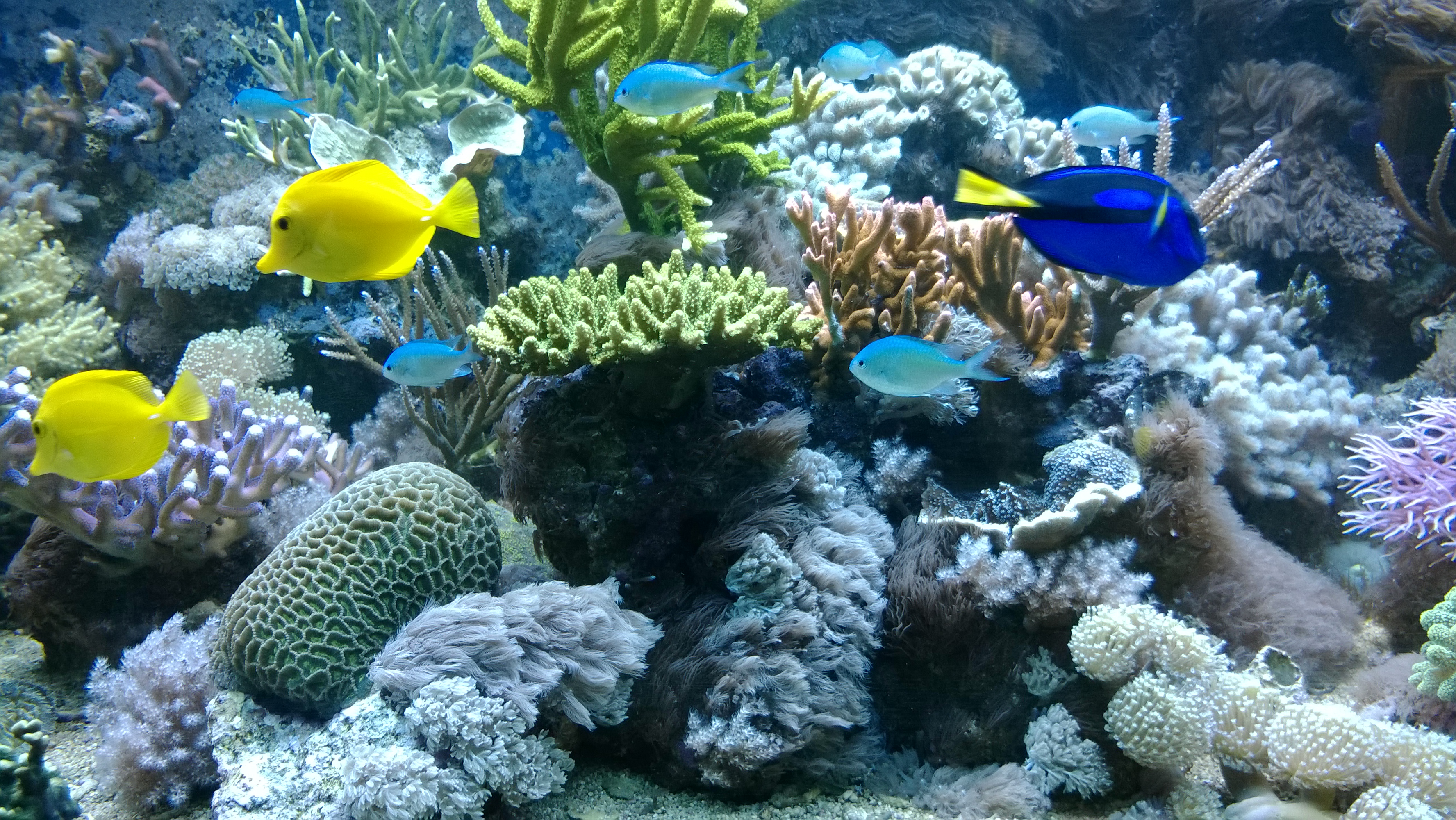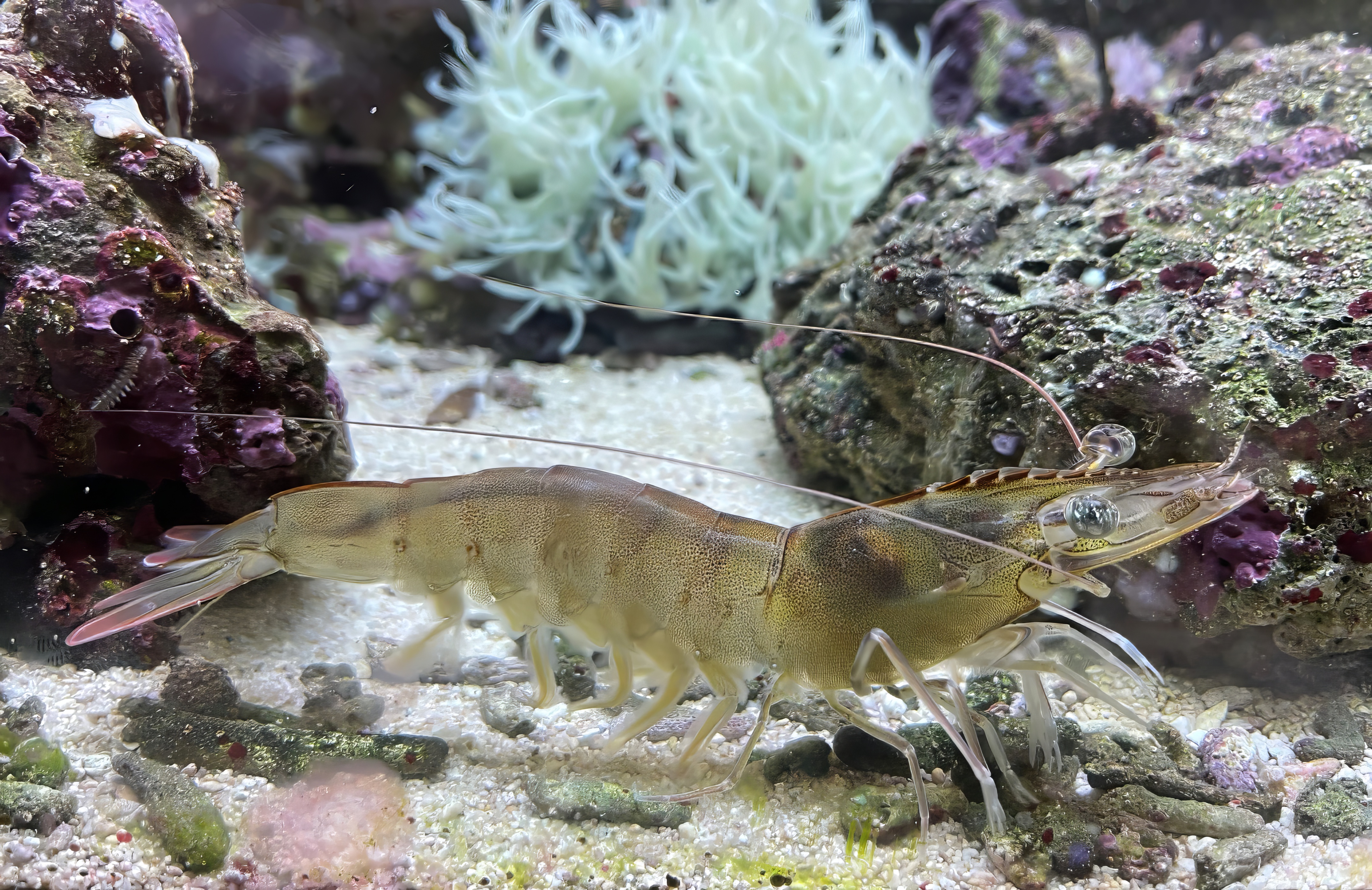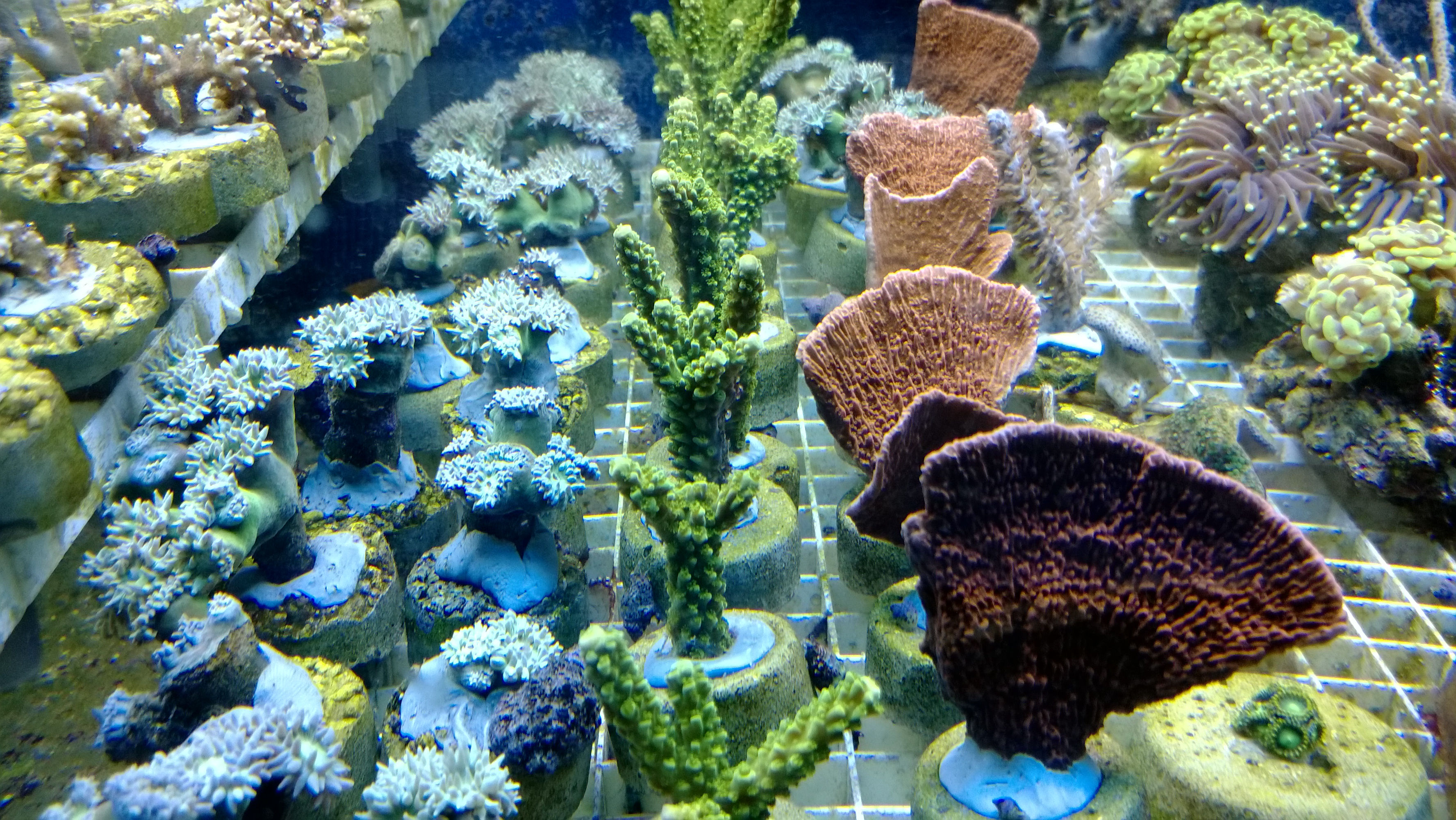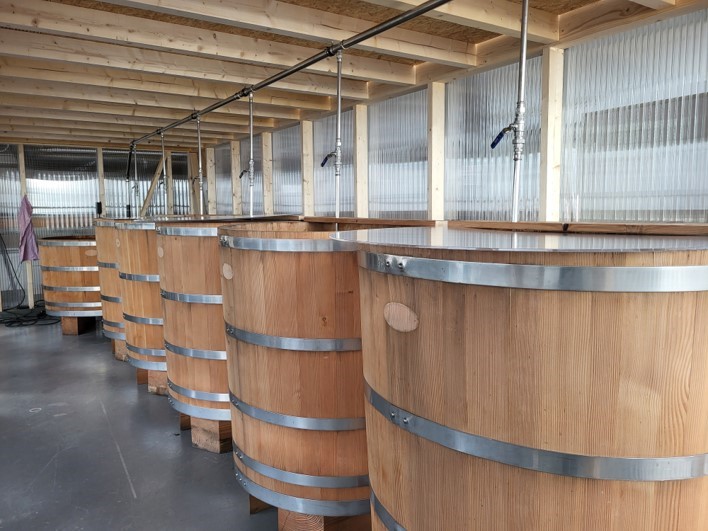We develop tailor-made and sustainable R&D solutions for saltwater and freshwater systems in the aquaculture industry. Our services range from innovative feed and smart animal welfare monitoring to environmentally friendly plant systems.
Sustainable aquaculture
Fishmeal-free feed: Sustainable innovations for your aquaculture
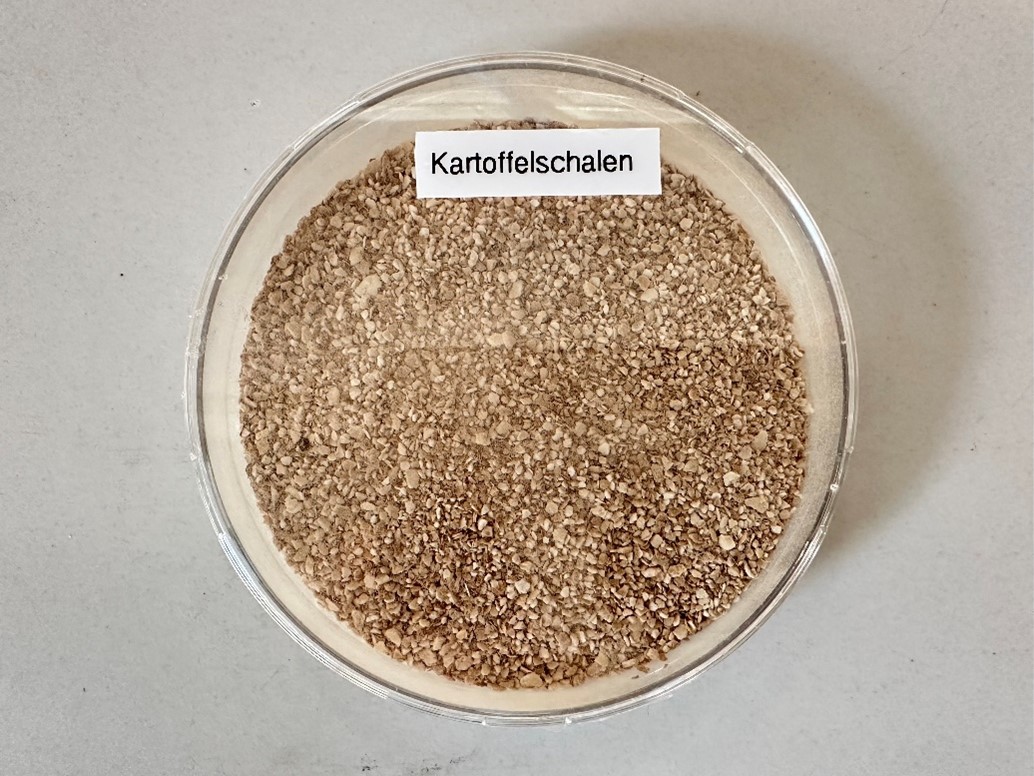

Aquaculture faces the challenge of minimising its ecological footprint. A key starting point here is reducing the amount of fishmeal in feed. We offer tailor-made solutions for replacing fishmeal with sustainable alternatives such as insect meal – for example, from black soldier flies or silkworms.
Our expertise includes:
- Concept and formulation:
- We develop fishmeal-free feed that is optimally tailored to the needs of your target species.
- Controlled testing:
- We test the efficiency and sustainability of the new feed under real conditions.
- Economic and ecological sustainability:
- By using plant-based by-products such as potato peelings, apple pomace or cocoa shells as insect feed, we increase the economic efficiency of your feed production while also improving ecological sustainability.
Smart animal welfare and pathogen control: For healthy and profitable aquaculture
The well-being of your aquaculture organisms is the key to sustainable success. Stress and disease can lead to significant production losses. Preventive measures are therefore essential in antibiotic-free aquaculture.
Our innovative solutions include:
- Non-invasive anomaly detection:
- We develop and implement smart systems based on modern technologies such as blockchain and AI to detect early deviations in the behaviour or health of your animals.
- DNA-based pathogen chips:
- We develop specific chips for your target species that enable fast and reliable detection of pathogens in water, feed and other substrates – even before a disease outbreak threatens.
Sustainable materials in aquaculture: Build ecologically, reap economic benefits
The widespread use of unsustainable materials such as plastic, concrete and steel in closed aquaculture systems poses a significant environmental burden. We research and develop alternatives.
Our focus is on:
- Wood as a building material:
- We have successfully tested the long-term use of large wooden tanks in commercial aquaculture from an environmental and economic perspective.
- Comprehensive material testing:
- We examine different types of wood for their suitability for specific types of aquaculture, analyse extracts in the wood and probiotics in the wood biofilm, and document the reduction of microplastic particles in the system.
Innovative aquaculture systems: The future of integrated farming
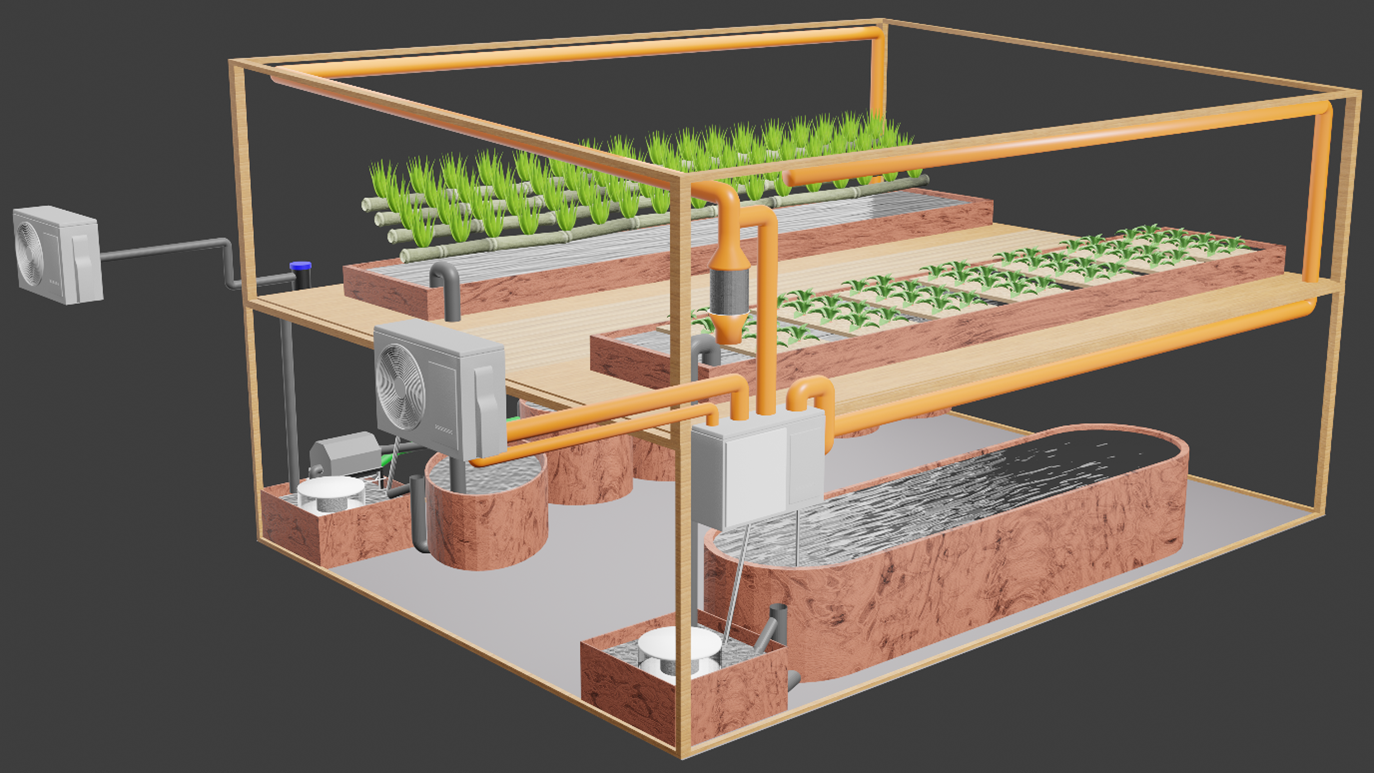
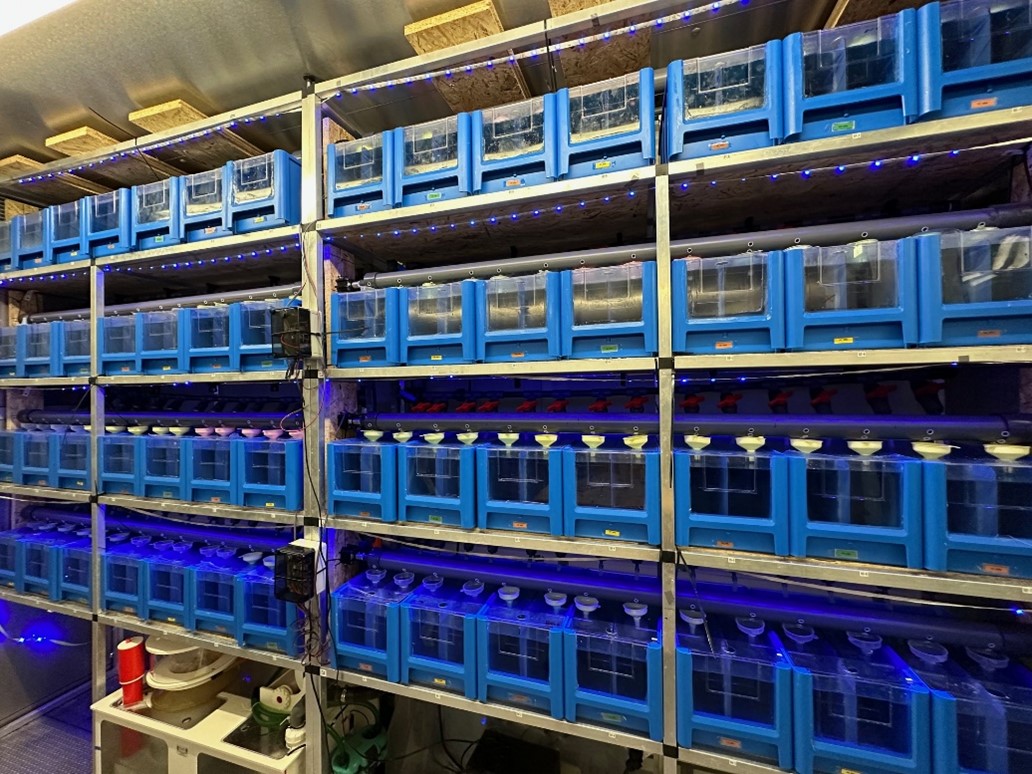
Our expertise includes:
- Development of IMTA systems:
- Together with Justus Liebig University Giessen (JLU), we have developed and constructed experimental IMTA systems under saline and brackish water conditions that enable the economic integration of different trophic levels and saltwater species (e.g. filter feeders, fish and shrimp, macroalgae and salt-tolerant terrestrial plants).
- Specialised individual systems:
- Together with JLU, we operate aquatic individual systems in which up to 240 individuals can be kept individually under freshwater and saltwater conditions. This enables feeding and animal welfare experiments with high statistical significance.
Prof. Dr. Thomas Wilke and his research team have built an energy-efficient shrimp farm and are developing sustainable feed for the crustaceans. | Hessenschau
Prof. Dr. Thomas Wilke: What does a bioeconomy in water look like?
BioBall - The podcast – Closing urban cycles: Solutions for a bio-based economy
The term ‘bioeconomy’ is more commonly associated with the use of sugar, straw and wood than with aquaculture. However, aquaculture has always been a form of bio-based circular economy. Circular systems not only reduce energy costs, they can also be a very efficient way of utilising waste materials while improving animal welfare. In this interview, Thomas Wilke explains exactly what shrimp farming in the metropolitan region can look like and how BioBall is approaching this issue.
 Fraunhofer Institute for Molecular Biology and Applied Ecology IME
Fraunhofer Institute for Molecular Biology and Applied Ecology IME